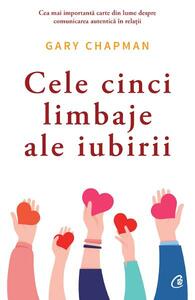Take a photo of a barcode or cover
A friend recommended I read this, as we often discuss the likelihood that specific people will be good partners. The book, while somewhat over-illustrated and -reinforcing, provides an interesting perspective on the intersection of communication and personality - specifically, how different people conceptualize love.
I should note that I am typically not a fan of "self-help" books, as they often seem rudimentary and directed to a certain audience (note: this one makes references to NASCAR and flea markets). However, this book is derived from anthropological principles and the author's counseling experiences, yet presents its thesis in an approachable and useful way. Overall, it is a quick read that offers universal guidance on understanding what behavior motivates you and your partner to love.
I should note that I am typically not a fan of "self-help" books, as they often seem rudimentary and directed to a certain audience (note: this one makes references to NASCAR and flea markets). However, this book is derived from anthropological principles and the author's counseling experiences, yet presents its thesis in an approachable and useful way. Overall, it is a quick read that offers universal guidance on understanding what behavior motivates you and your partner to love.
Good ideas and practical strategies but needs to be updated.
As the title says.... The secret to love that lasts.
One of the top 3 books to read before entering a marriage.
One of the top 3 books to read before entering a marriage.
Another book for work. I think the concept of the love languages is relevant and applicable to relationships. The author comes across with some arrogance but he really lost me when he started quoting Jesus to his clients in session. I’ll pick and choose what I need from this book and leave the rest. ✌️
this book truly has the power to transform burnt out relationships. my complaints: heteronormative book, still has stereotypes for men and women (also excludes gender nonconforming people), and it makes me wonder if some people might be working on a relationship that should just end and not be worked on. despite all this, the advice given is tremendous and is making me work on how i give and receive love to/from the people in my life.
informative
medium-paced
informative
reflective
fast-paced
It's a bit cheesy and feels very gender-stereotype enforcing, where the men work all day and want sex and the women mostly like it that way. And it's definitely heteronormative. It also throws some Jesus lines in there and I'm like wut. Outside of that, it sounds like a miracle worker because you're giving your partner what they crave which is potentially different from you. It doesn't seem like mind blowing advice, but it's very real that people forget others aren't like them, including their partner. Can people be reduced to a single love language (outta five) to make them happy? Idk. The examples in the book overwhelming say yes, but it sounds too good to be true to me. I did appreciate the concept.
inspiring
reflective
fast-paced
'The 5 Love Languages' provides a mental framework to help the reader grasp one fundamental truth: don't treat others as you would have others treat you. Rather, treat others as others would have you treat them.
Within the context of a marriage, this translates to learning which actions one can take to make one's spouse feel loved. The challenge, of course, is that everyone's different. One person might show love by working hard to maintain a neat and tidy household, but those efforts may be worthless when done for someone who values other behaviors far more. To help readers wrap their heads around this idea, Dr. Chapman posits five "love languages:" words of affirmation, acts of service, (giving or) receiving gifts, quality time, and physical touch. He goes on to write that most of us "speak" one or two of these languages and "send" our messages of love in them. If, however, our loved ones "speak" different languages, those messages may fall on deaf ears and lead our loved ones to, in fact, feel unloved.
How to determine the love languages of those about whom we care? Ask them. How to cultivate behaviors that will "speak" to them in the language(s) they understand? Practice. How to know whether it's working? You'll know.
And that's it in a nutshell. This is a short book, one with a simple message well explained. We aren't talking about a huge investment of time, and it's an investment worth making. I recommend 'The 5 Love Languages.'
Within the context of a marriage, this translates to learning which actions one can take to make one's spouse feel loved. The challenge, of course, is that everyone's different. One person might show love by working hard to maintain a neat and tidy household, but those efforts may be worthless when done for someone who values other behaviors far more. To help readers wrap their heads around this idea, Dr. Chapman posits five "love languages:" words of affirmation, acts of service, (giving or) receiving gifts, quality time, and physical touch. He goes on to write that most of us "speak" one or two of these languages and "send" our messages of love in them. If, however, our loved ones "speak" different languages, those messages may fall on deaf ears and lead our loved ones to, in fact, feel unloved.
How to determine the love languages of those about whom we care? Ask them. How to cultivate behaviors that will "speak" to them in the language(s) they understand? Practice. How to know whether it's working? You'll know.
And that's it in a nutshell. This is a short book, one with a simple message well explained. We aren't talking about a huge investment of time, and it's an investment worth making. I recommend 'The 5 Love Languages.'


